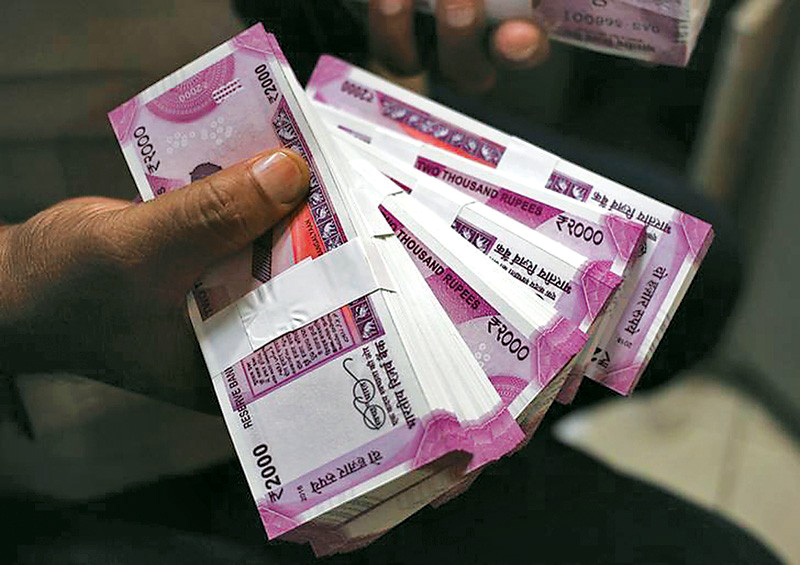Kathmandu, January 15, 2017: Officials of the Indian finance ministry and the central bank will soon visit Nepal to take stock of preparations made by Nepal to provide currency exchange facility to Nepalis holding banned Indian banknotes.
Officials of the Ministry of Finance of India and Reserve Bank of India expressed interest in visiting Nepal during meetings held with Nepali officials in the Indian capital of New Delhi on Thursday and Friday, according to Bhisma Raj Dhungana, head of the Foreign Exchange Management Department at Nepal Rastra Bank (NRB).
A Nepali delegation led by NRB Deputy Governor Chintamani Siwakoti had visited India to discuss the issue of providing currency exchange facility to Nepalis holding IRs500 and IRs1,000 that were pulled out of circulation by the Indian government on in November.
The team had visited India almost two weeks after the December 30 deadline to deposit the banned notes in Indian banks expired.
“The talks were very fruitful. And Indian authorities are positive about providing exchange facility to Nepalis holding banned Indian banknotes here in Nepal,†said Dhungana, one of the members of the Nepali delegation that visited India. “But they have sought a detailed plan from Nepal on ways to curb inflow of black money from India once exchange facility is extended to Nepalis here.â€
Indian authorities have long expressed fear about Nepal being used as “a clearing house†to channel illegally amassed banned notes into India’s financial system.
“We will now have to frame a detailed plan to convince Indian authorities that Nepal will not be used for that purpose,†said Dhungana, adding, “We will present the plan during the visit of Indian officials to Nepal, date of which will be fixed soon.â€
The Indian government, in a surprising move on November 8, pulled IRs500 and IRs1,000 out of circulation “to unearth unaccounted wealth and fight corruptionâ€. But this drive was not successful as Indian banks received IRs14.97 trillion as of December 30, the deadline for handing in the old bank notes, according to Bloomberg.
“The government had initially estimated about IRs5 trillion of the IRs 15.4 trillion rendered worthless to remain undeclared as it may have escaped the tax net illegally, known locally as black money.â€
The Indian government’s move has also caused inconvenience to many Nepalis, especially those who earn a living by working as daily-wage labourers in India, visit the neighbouring country seeking medical treatment or rely on Indian markets to purchase daily essentials.
The NRB has said IRs33.6 million in the denominations of 500 and 1,000 is within the financial system in Nepal. The figure includes cash parked at vaults of banks, financial institutions and NRB.
But actual stock of banned Indian bank notes is expected to be much higher because Nepalis were previously allowed to carry Indian 500- and 1,000-rupee bank notes worth up to IRs25,000. Also, those residing in areas bordering India usually stash Indian notes of larger denominations as they have to frequent Indian markets to buy goods.
“We are hopeful about providing currency exchange facility to Nepalis holding banned Indian notes soon,†Dhungana said.







